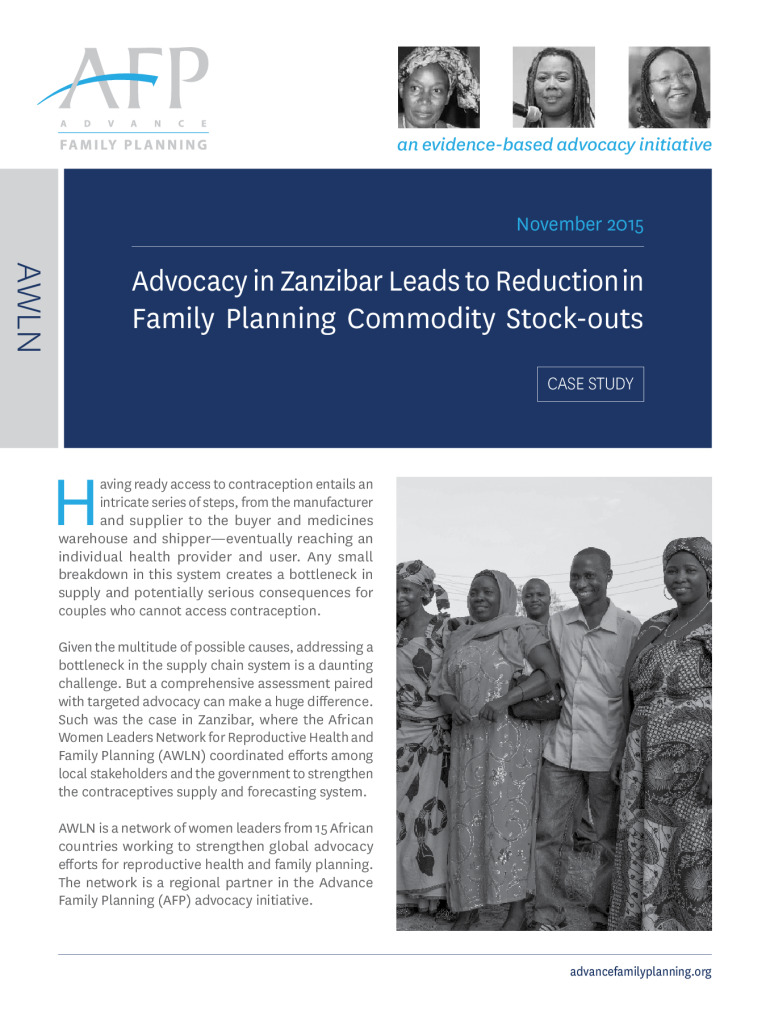
Resources
Advocacy in Zanzibar Leads to Reduction in Family Planning Commodity Stock-outs
Case Studies
Previous

Community Health Workers: Bringing family planning...
Next

FP2020 Commitment to Action 2014-15: Measurement A...
Topics:
Advocacy & Awareness
Having ready access to contraception entails an intricate series of steps, from the manufacturer and supplier to the buyer and medicines warehouse and shipper—eventually reaching an individual health provider and user. Any small breakdown in this system creates a bottleneck in supply and potentially serious consequences for couples who cannot access contraception. Given the multitude of possible causes, addressing a bottleneck in the supply chain system is a daunting challenge. But a comprehensive assessment paired with targeted advocacy can make a huge difference. Such was the case in Zanzibar, where the African Women Leaders Network for Reproductive Health and Family Planning (AWLN) coordinated efforts among local stakeholders and the government to strengthen the contraceptives supply and forecasting system. AWLN is a network of women leaders from 15 African countries working to strengthen global advocacy efforts for reproductive health and family planning. The network is a regional partner in the Advance Family Planning (AFP) advocacy initiative.









